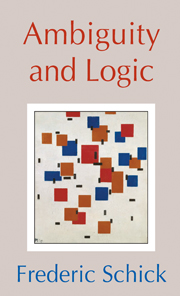7 - The Meaning of Life
Published online by Cambridge University Press: 10 November 2009
Summary
NEAR the middle of Tolstoy's Anna Karenina, Levin is sitting in his bedroom listening to the sounds of his dying brother.
[Levin's] thoughts were of the most various, but the end of all his thoughts was the same – death. Death, the inevitable end of all. … It was in himself too he felt [it]. If not today, tomorrow, if not tomorrow, in thirty years, wasn't it all the same! … He sat on his bed in the darkness, crouched up, hugging his knees, and holding his breath from the strain of thought, he pondered. But the more intensely he thought, the clearer it became to him that it was indubitably so, that in reality, looking upon life, he had forgotten one little fact – that death will come, and all ends, that nothing was even worth beginning.
The thought of death and the void that follows sent Levin into despair. He remained as active as before, for the thought didn't always intrude, but “darkness had fallen upon everything for him.” He even married and had a child, but at the core of all he did there was a sense of the pointlessness of it. “He saw nothing but death or the advance towards death in everything.”
Here is a report of the same awakening and of same reaction to it, this one from longer ago.
The wise man's eyes are in his head; but the fool walketh in darkness: and I myself perceived also that one event happeneth to them all.
- Type
- Chapter
- Information
- Ambiguity and Logic , pp. 117 - 132Publisher: Cambridge University PressPrint publication year: 2003



